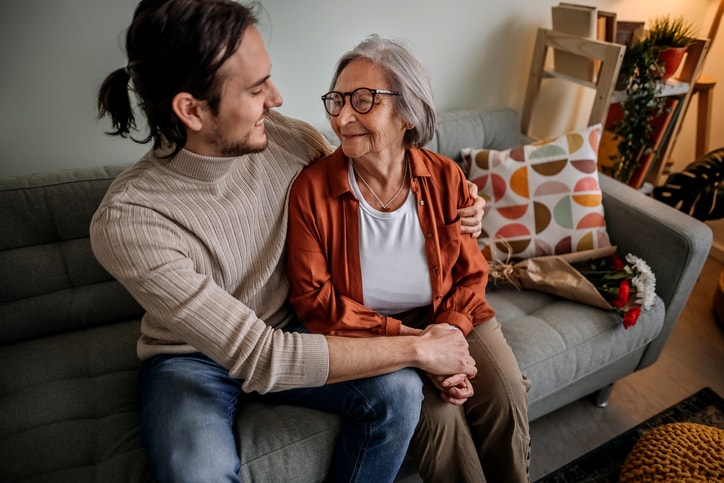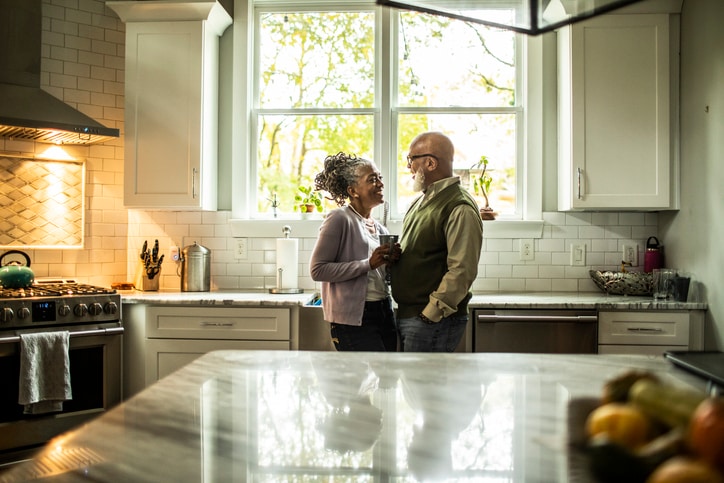While some seniors with Alzheimer’s choose to move into assisted living communities, others express a desire to age in place. The situation gets tricky when family members who want to respect a loved one’s wishes no longer feel that the person with dementia is safe at home.
Dr. June McKoy, a board-certified gerontologist at Northwestern Medicine in Chicago, acknowledges the difficulty of deciding whether a loved one with Alzheimer’s needs to transition to residential care. “But if the memory loss they’re having is putting them at risk, safety is the most important consideration,” she says.
So, how do you know when should someone with dementia go into a care home that has round-the-clock support? It’s much safer to move a loved one earlier than face the consequences of falls, weight loss or mismanaged medications, says Claudia Wong, a board-certified family nurse practitioner and cognitive care expert at Providence Saint John’s Health Center in Santa Monica, California.
Here, nine expert-backed red flags that caregivers should watch out for when deciding if it’s time for a loved one with Alzheimer’s to move into assisted living or a nursing home.
When should an Alzheimer’s patient go to a nursing home?
According to Wong, the following symptoms and behaviors are indicators that a loved one with Alzheimer’s needs — or at least would benefit from — assisted living or nursing home care.
1. Wandering
People diagnosed with Alzheimer’s might get lost on a short walk or drive around a once-familiar neighborhood. Sixty percent of seniors with dementia will wander at least once, according to the Alzheimer’s Association.
Wong says wandering is a clear indication that a loved one with Alzheimer’s needs more oversight and support. Though most patients are found within 1.5 miles of home, even that small area can be full of tripping hazards, busy intersections, or bodies of water.
2. Poor medication management
As seniors age, their collection of prescriptions often grows. Properly managing the timing and dosage is vital for good health. The very real dangers of overdose or missed meds make medication management one of the principal caregiver duties.
If a loved one with Alzheimer’s can no longer keep up with changing prescriptions, medication pick-up, or proper dosage, Wong says it’s time to look into assisted living or nursing home care.
3. Mobility issues
For seniors with Alzheimer’s, loss of mobility can signify that the disease is progressing.
Pennsylvania-based licensed social worker Edie Weinstein, who works with seniors in nursing homes, says that if daily tasks such as bathing, dressing or meal prep have become difficult, it’s time to consider residential care. Mobility issues also raise the risk of falls — and as McKoy reminds, safety should be a top priority.
“If the memory loss they’re having is putting them at risk, safety is the most important consideration.”
—Dr. June McKoy, board-certified gerontologist
4. Personality changes or difficult behaviors
According to the National Institute on Aging, hallucinations, delusions, paranoia, and increased agitation are all symptoms of moderate-stage Alzheimer’s disease. Wong says they are also signs that it’s time to transition to residential care.
McKoy explains that a memory care center in an assisted living community or a nursing home will be staffed with people who understand the intricacies of Alzheimer’s disease. These medical professionals can help a loved one with dementia safely navigate memory loss, confusion, and changing thoughts and feelings.
5. Weight loss
The brain changes caused by Alzheimer’s can affect every facet of life. Some seniors with dementia forget to eat, leading to malnutrition and unhealthy weight loss.
Wong says unexpected weight loss is a clear, visible sign that a loved one needs more consistent care.
6. Unsafe living conditions
This includes living arrangements that can’t be modified (such as a layout where the bathroom is upstairs and the bedroom is downstairs), unmanaged clutter that has become a tripping hazard, or even instances in which the aging loved one started to forget to turn off the stove or secure the house at night. Regardless of the specifics, a loved one with Alzheimer’s should not be left to live alone in a place that is unsafe for them or their neighbors.
“If they’ve flooded the house because they forgot to turn off the tub [and] are living in an apartment situation, they’re putting the safety of others at risk,” notes McKoy.
7. Caregiver stress or exhaustion
As a family caregiver, you want the best for your aging loved ones. However, the best care doesn’t always mean care from a family member. If a loved one’s cognitive decline is creating a strain at work or home, sometimes the best thing is to get professional help.
According to Wong, nursing homes and assisted living communities can help take pressure off of family relationships. “When they visit the person in the residential care facility, they’re fully present to be with them as a family member,” she explains.
8. Long-distance or inconsistent caregiving
It’s important to know your limitations as a family caregiver, according to Wong. If there are not enough loved ones to watch over someone with dementia at home, it’s time to consider a residential care facility.
Distance can also pose a problem. When family members live in a different state from their loved one with Alzheimer’s, assisted living or nursing home care can benefit everyone involved.
“It’s very hard to manage long-distance care at home,” explains Wong. “Often, there are communication breakdowns with time differences or caregivers not reporting things to you that you think are important.”
9. Loneliness
Depression and loneliness can wreak havoc on seniors’ health, leading to an increased risk of premature death, heart disease and stroke, explains Wong.
If a loved one with dementia seems lonely, isolated or increasingly withdrawn, Weinstein says caregivers should take that as a sign to look into residential care.
Join Care for free
How to make the final decision
Some seniors benefit from home care before transitioning to residential care, notes Weinstein.
Still, if you’re still unsure of the best option for a loved one who has Alzheimer’s, McKoy and Wong recommend talking to the senior’s primary care physician. According to Wong, they’ll be able to consider any of the above signs — and your loved one’s individual picture — to help you determine if now is the time for them to move to a long-term care facility.





